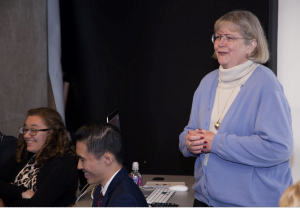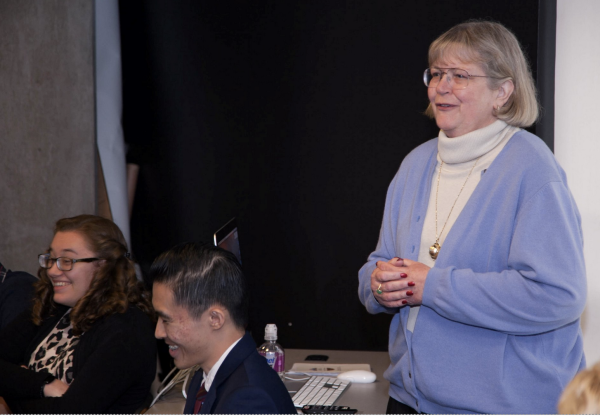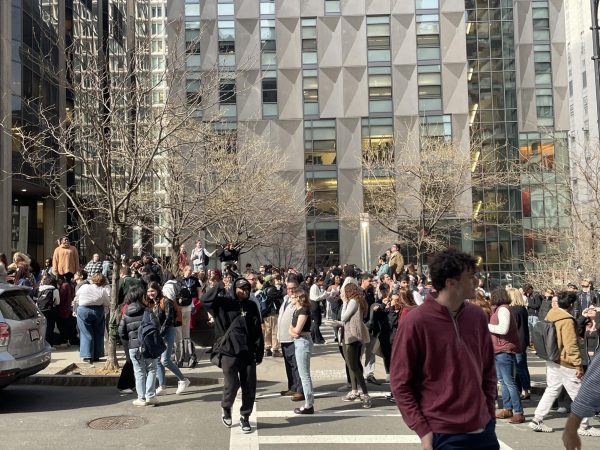China’s economy needs help too
March 3, 2010
“…China is losing a lot of money and its economy is slowly down-turning.”
Yasheng Huang, a professor of political economy and international management from the MIT Sloan School of Management came to Suffolk on Monday to talk about the dynamics and challenges of China’s economy.
The author of 2008’s Capitalism with Chinese Characteristics, Huang talked about China’s consumption decline, their rural economy and China’s biggest challenge: rebalancing their economy.
Many products in America have “Made in China” engraved on it. This is because China produces a lot of easy to make items, like shoes and shirts, and sells it to nations like the United States and countries in Western Europe.
It’s obvious that the economy in the United States is in a recession, and that no one wants it to be where it is. Because of this recession, we are consuming less, which means that we are consuming less products China produces.
Since the United States is consuming less, China is losing a lot of money and its economy is slowly down-turning. Huang believes that if the U.S. continues to not buy as much from China, that “China’s economy will have a lot more problems.”
Since China decided to make everything it possibly can, it has changed the nation from a rural economy to an urban economy. People of China have left the fields and have moved to the coastlines where they can work in factories.
The income of a coastal migrant compared to the income of a rural worker is three times greater. If a rural worker has the same education and the same skills as a coastal worker, the coastal worker still gets paid 1.5 to 2 times more.
However, there are still disadvantages of a coastal worker. Besides having to move to the coast, there are also rarely any wage increases. Huang said that according to a survey, “when asked in 2008, ‘what was the first year when [the coastal worker] experienced an industrial wage growth?’ 95 percent of the people asked said 2005.”
Wages are not increasing in China so therefore the consumption in China is not increasing. The urbanization of China has not increased income. In the 1980’s, China had fast Gross Domestic Product (GDP) growth, which “has grown too fast for the good of the country,” said Huang.
While the GDP was increasing steadily in the 1980’s in China, it suffered tremendously in the 1990’s. Huang, who also published “Inflation and Investment Controls in China” in 2006 and “Selling China” in 2003, believes that China “has a difficult period to come” and he “hopes they use this opportunity to restructure their economy.” The most important thing to Huang, however, is that China “rebalances their economy.”
Many students and faculty showed up for Yasheng Huang’s lecture at 20 Derne Street, who was prepared with a long presentation. However, everyone who showed up also showed up with many questions, leaving Huang unable to present 17 of his slides, but he laughed it off and showed enthusiasm that so many people were interested in China’s economy.
Ron Suleski, professor and director for the Rosenberg Institute for East Asian Studies, was the one who asked Huang to come speak. “I’m really grateful that [Yasheng Huang] could come today, and I think this was a great talk,” he said as he dismissed his class and ended the lecture.
The Asian Studies Program will also be presenting “Revisiting the ‘Google in China’ Question” tomorrow at 1:00 in Donahue 403. A discussion will occur in depth analysis of the issues surrounding Google in China.
















